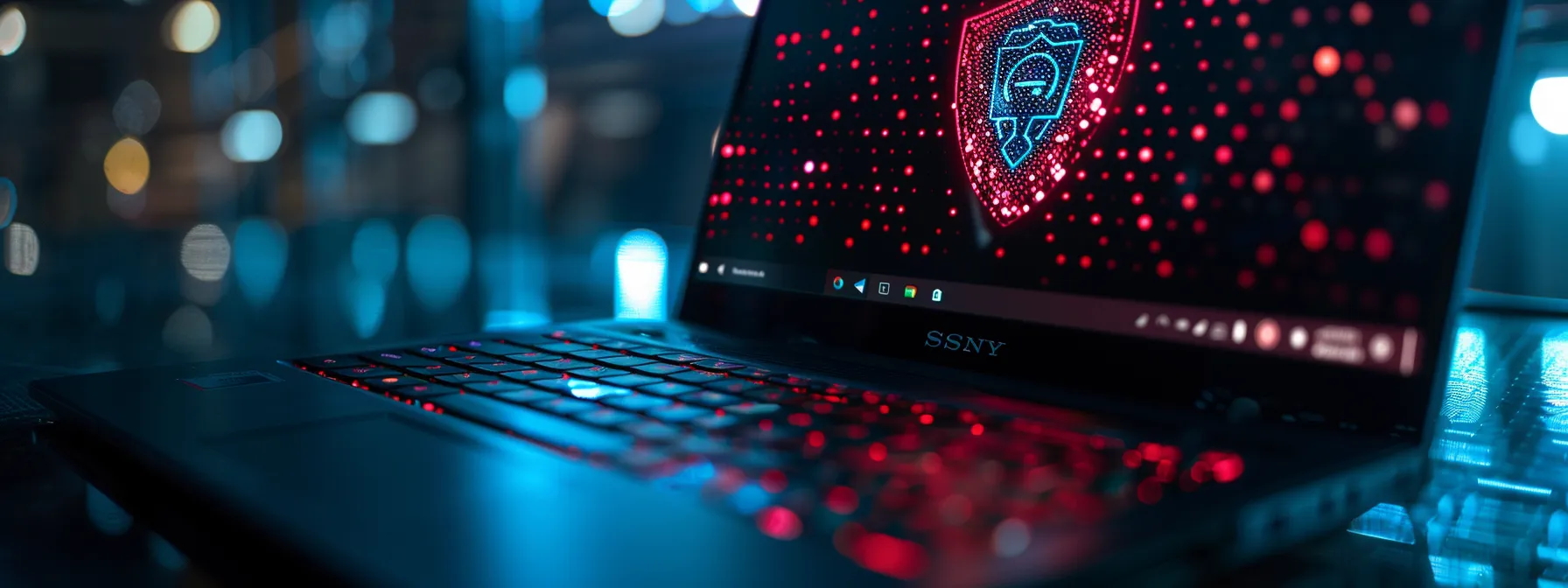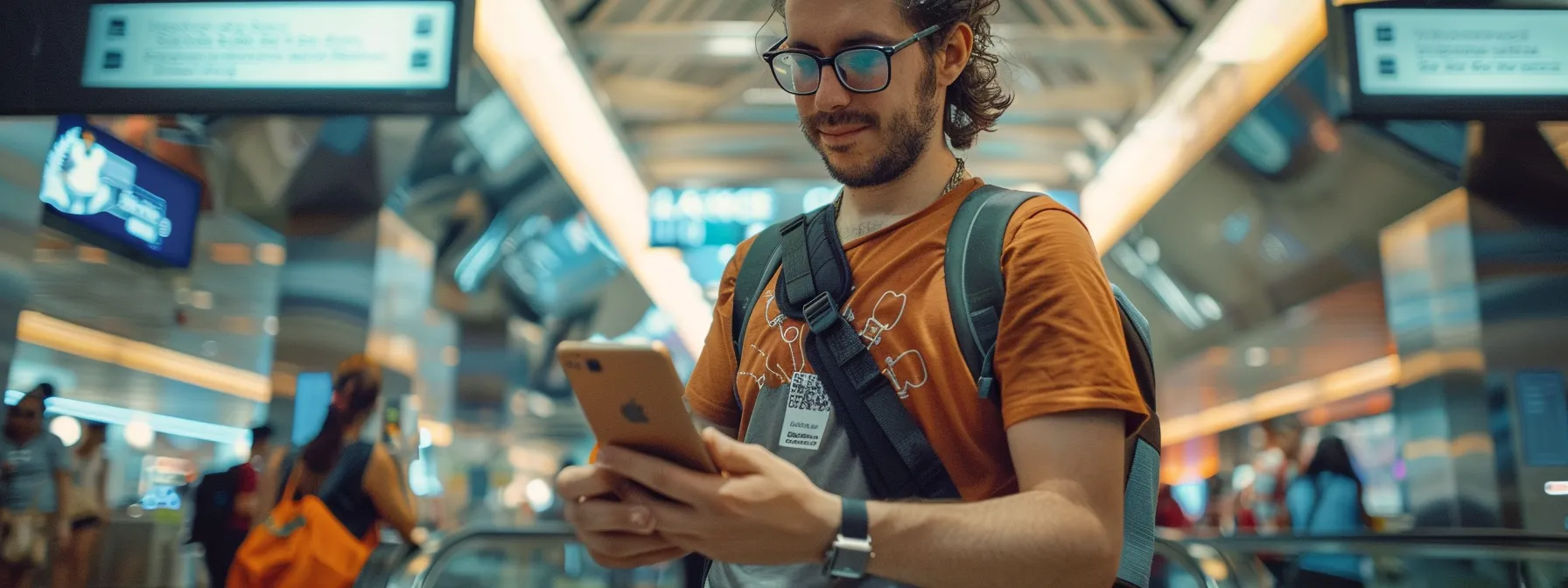Table Of Contents:
- Essential Secure Online Banking Strategies for Digital Nomads
- Key Takeaways
- Understanding the Risks of Online Banking While Traveling
- Common Cyber Threats Faced by Digital Nomads
- How Public Wi-Fi Networks Can Compromise Security
- The Importance of Using VPNs for Secure Connections
- Choosing Secure Banking Platforms for Digital Nomads
- Essential Security Features to Look For
- Mobile Banking Apps With Advanced Protection
- Evaluating Bank Policies on International Access
- Protecting Your Devices From Unauthorized Access
- Implementing Strong Passwords and Biometrics
- Keeping Software and Applications Updated
- Utilizing Trusted Security Software on All Devices
- Safe Practices for Online Transactions Abroad
- Verifying Secure Websites Before Logging In
- Avoiding Financial Activities on Public Networks
- Regularly Monitoring Account Activity for Suspicious Behavior
- Implementing Multi-Factor Authentication Techniques
- Setting Up Two-Factor Authentication With Your Bank
- Using Authenticator Apps for Added Security
- Understanding the Benefits of Hardware Security Keys
- Preparing for Emergency Situations While Traveling
- Setting Up Account Alerts and Notifications
- Knowing How to Contact Your Bank Internationally
- Steps to Take if Your Account Is Compromised
- Conclusion
Are you worried about the security of your online banking while traveling? Digital nomads often face significant risks, from unauthorized transactions to identity theft. This article will explore essential secure online banking strategies, covering topics such as choosing secure banking platforms and protecting your devices with encryption. By understanding these tips, you can safeguard your finances and enjoy peace of mind during your travels, ensuring that your mobile banking experience remains safe and efficient. Don’t let online banking fees and potential fraud disrupt your journey; let’s dive into how to protect your financial assets effectively.
Key Takeaways
- use a strong password and biometric features to enhance online banking security
- avoid public Wi-Fi for financial transactions whenever possible
- enable two-factor authentication to create an extra layer of protection for your accounts
- regularly monitor account activity to quickly identify and respond to unauthorized transactions
- choose banks with robust international support and transparent policies for travelers
Understanding the Risks of Online Banking While Traveling

As a perpetual traveller and digital nomad, you face unique risks when managing your online banking. Common cyber threats, such as identity theft and malware, can compromise the security of your savings account and debit card information. Additionally, using public Wi-Fi networks further increases your vulnerability, making it crucial to understand the importance of employing a VPN for secure connections. This section will delve into these critical topics to help you protect your finances while traveling.
Common Cyber Threats Faced by Digital Nomads
As a digital nomad, you are susceptible to numerous cyber threats that can jeopardize your online banking security. One of the most common issues is identity fraud, where malicious actors may use stolen information, like your credit card details, to make unauthorized purchases. Staying vigilant is critical, especially when using unsecured networks.
Another risk you might encounter is malware that can be inadvertently downloaded while browsing the internet. Malicious software can capture keystrokes or access your web browser history, potentially revealing your passwords and other sensitive data. This underlines the importance of maintaining robust antivirus software on your devices to help shield against such attacks.
Phishing scams are yet another prevalent threat that can affect users like yourself. These scams often come as emails or messages mimicking legitimate institutions, encouraging you to enter your login credentials or financial information. Always verify the source before clicking on any links, and consider using multi-factor authentication to add an extra layer of security to your accounts.
How Public Wi-Fi Networks Can Compromise Security
Using public Wi-Fi networks can significantly compromise your online banking security. When you connect to these unsecured networks, hackers can potentially intercept the data transmitted between your device and your bank’s mobile app. This interception can lead to theft of your sensitive information, including bank account details, which can result in unauthorized transactions or even mortgage-related fraud.
Your operating system also plays a crucial role in protecting your data while using public Wi-Fi. If your device’s security settings are not properly configured, it becomes easier for cybercriminals to access your banking information. Ensuring your operating system is up to date and using strong passwords can help minimize these risks. Moreover, consider using a Virtual Private Network (VPN) to encrypt your connection, adding a critical layer of safety.
To further safeguard your financial information, always avoid conducting sensitive transactions when connected to public Wi-Fi. This includes accessing your mobile banking app or updating your bank account details. By being proactive and using secure connections, you reduce the risk of falling victim to identity theft or financial loss while traveling.
The Importance of Using VPNs for Secure Connections
When you travel, connecting to public Wi-Fi networks can expose you to serious security risks. Using a Virtual Private Network (VPN) significantly enhances your secure online banking efforts. By encrypting your internet connection, a VPN creates a protective barrier, making it much harder for hackers to intercept the data you transmit while managing your finances online.
While using public Wi-Fi, you might need to perform essential tasks such as online banking or bill pay. Engaging in these activities without a VPN can put your personal information at risk, including sensitive bank details. By securing your connection with a VPN, you can confidently use available networks without fearing that your sensitive data could be compromised.
Additionally, choosing a reputable VPN service allows you to maintain your privacy, especially when accessing accounts from different locations. This is particularly important for digital nomads who may connect to various networks around the world. Prioritizing a VPN as part of your online banking strategy will empower you to manage your finances securely, no matter where you are traveling.
With risks in mind, you must now choose the right banking platform. The security of your funds can determine your peace of mind while you roam the world.
Choosing Secure Banking Platforms for Digital Nomads

When choosing secure banking platforms as a digital nomad, you need to focus on essential security features to protect your finances. Look for mobile banking apps with advanced protection measures that safeguard your data, especially when using a public computer or mobile device. Additionally, evaluating bank policies on international access is crucial, allowing you to maintain access to your line of credit and customer service support as you travel.
Essential Security Features to Look For
When evaluating banking platforms as a digital nomad, prioritize those that offer strong encryption methods to protect your transactions and personal data. Look for banks that utilize Secure Socket Layer (SSL) or Transport Layer Security (TLS) protocol, ensuring that your information remains secure while being transmitted. As you navigate financial services globally, using platforms with robust security measures is crucial for safeguarding against potential threats.
Consider platforms that provide multi-factor authentication (MFA) to add an extra layer of protection to your accounts. This feature enhances security by requiring a second form of verification—like a text message code or authentication app—alongside your password. Implementing these security features not only strengthens your online banking safety but also gives you peace of mind while traveling, allowing you to focus on your experiences rather than worrying about your finances.
Finally, it is beneficial to choose banks that have a transparent policy regarding international access and support. This ensures you won’t face unexpected issues while traveling, such as denied access to your funds or unresponsive customer service. With resources like the Nomad Passport Index, you can stay informed about the best banking options for your needs as you explore different countries and enhance your Travel Tips for secure digital management of your finances. Additionally, many banks now cater to the needs of digital nomads by offering tailored services that facilitate international transactions. It’s also worth exploring global nomad visa options, which can provide you with greater flexibility to manage your finances while living abroad. By combining smart banking choices with the right visa, you can enhance your travel experience and ensure smooth financial operations.
Mobile Banking Apps With Advanced Protection
Choosing the right mobile banking app is critical for digital nomads who need advanced protection while managing their finances. Look for apps that offer strong encryption protocols, ensuring your transactions are secure during data transmission. These security features are essential, especially when accessing your accounts over public Wi-Fi connections, which often pose risks to your sensitive information.
Many leading mobile banking platforms now include multi-factor authentication (MFA) for added security. With MFA, you are required to verify your identity through multiple methods, such as a one-time password sent to your phone. This additional step significantly reduces the chances of unauthorized access to your accounts and gives you peace of mind while traveling.
Additionally, it’s beneficial to select apps that provide real-time transaction alerts. These notifications allow you to instantly track your spending and detect any unusual activity. By staying informed about your account status, you can quickly respond to potential threats and maintain control over your financial security as you explore the world:
Evaluating Bank Policies on International Access
When evaluating bank policies on international access, you should prioritize institutions that offer global support and easy access to your accounts while traveling. Look for banks that do not impose restrictions on your ability to withdraw funds or make transactions from various countries. This can save you from interruptions in accessing your money during critical times abroad.
Additionally, it’s wise to review the bank’s fees on international transactions, as these can significantly impact your finances while on the road. Some banks may charge high foreign transaction fees or limit your debit card usage globally. Opting for a bank with competitive rates or no fees on international transactions can enhance your experience as a digital nomad.
Moreover, consider the availability of local customer service resources when assessing bank policies. Being able to reach support in your time zone or get assistance in the local language can be crucial when facing banking issues abroad. This becomes particularly important in emergencies where funds need to be accessed urgently or fraud needs to be addressed swiftly:
- Prioritize global support and unrestricted access to funds.
- Review fees on international transactions.
- Check for local customer service availability.
Secure banking is just the beginning. Next, you must guard your devices against those who wish to intrude.
Protecting Your Devices From Unauthorized Access

To protect your devices from unauthorized access, start by implementing strong passwords and biometric features. Keeping your software and applications updated is crucial, as it provides necessary security patches. Additionally, utilizing trusted security software on all devices adds another layer of defense against potential threats. These strategies are essential for maintaining your online banking security while traveling.
Implementing Strong Passwords and Biometrics
Implementing strong passwords is a foundational strategy in protecting your online banking activities. Use a combination of uppercase and lowercase letters, numbers, and special characters to create a complex password that is difficult to guess. This practice not only safeguards your accounts but also reduces the likelihood of unauthorized access, a critical concern for digital nomads who frequently connect to various networks.
In addition to robust passwords, you should consider utilizing biometric authentication features available on many devices today. Fingerprint readers and facial recognition technology provide an extra layer of security. These biometric methods make it significantly harder for individuals without your physical attributes to access your banking application, thereby enhancing your overall online banking safety.
Regularly updating your passwords and enabling multi-factor authentication (MFA) should also be part of your security protocol. By requiring a second verification step, MFA adds another layer of protection, especially useful when navigating unfamiliar online environments. Consider these steps as vital actions to shield your finances effectively while you travel:
- Create strong, complex passwords combining letters, numbers, and symbols.
- Utilize biometric authentication such as fingerprint or facial recognition.
- Regularly update passwords and enable multi-factor authentication for enhanced security.
Keeping Software and Applications Updated
Keeping your software and applications updated is a critical aspect of safeguarding your devices from unauthorized access while managing your finances as a digital nomad. Regular updates often include security patches that address vulnerabilities which cybercriminals could exploit. By enabling automatic updates on your devices, you can ensure that you always have the latest protection without the hassle of remembering to do it manually.
In addition to operating systems, pay attention to the individual apps you use for online banking. Many banking applications regularly release updates that enhance security features or fix existing bugs. By downloading these updates promptly, you not only improve the performance of your apps, but also fortify your defenses against potential threats, allowing you to conduct your banking activities with greater peace of mind.
Lastly, consider using trusted security software that can alert you when updates are available or run scheduled scans to check for vulnerabilities. These tools help maintain a robust online banking environment, especially in unfamiliar locations. By being proactive about keeping your software current, you significantly reduce the risk of unauthorized access to your financial information while you travel.
Utilizing Trusted Security Software on All Devices
Utilizing trusted security software on all your devices is crucial for protecting your online banking activities as a digital nomad. These tools can safeguard your personal information from unauthorized access, especially when you’re using potentially insecure public Wi-Fi networks. Opt for reputable antivirus programs that offer real-time threat detection and automatic updates to ensure your protection remains current.
In addition to antivirus software, consider using a comprehensive security suite that includes features like firewalls and anti-malware protection. Such software can help detect and block malicious software that could compromise your online banking security. By regularly running scans and keeping your software up to date, you mitigate the risks of cyber threats that may arise during your travels.
Trusted security software also often provides tools for safely managing passwords and sensitive information. Many applications include built-in password managers that can help you create and store complex passwords securely. By using these features, you reduce the chances of credential theft, allowing you to focus on enjoying your travel experiences without worrying about your financial security.
Even with your devices secure, the real challenge lies in how you manage your money abroad. Understanding safe practices for online transactions will keep your finances protected as you wander into new territories.
Safe Practices for Online Transactions Abroad

To ensure secure online banking while traveling, you should focus on several key practices. First, always verify that the websites you log into are secure to protect your sensitive information. Avoid conducting financial activities on public networks, where risks of data interception are high. Additionally, regularly monitoring your account activity helps you identify suspicious behavior early, allowing for timely action against potential threats.
Verifying Secure Websites Before Logging In
Before logging into your online banking account, it’s critical to verify that the website is secure. Look for “HTTPS” at the beginning of the URL, which signals that the site uses a secure encryption protocol. Additionally, you should see a padlock icon in the address bar, indicating that the connection is safe for transmitting sensitive information.
Always ensure you are reaching the official website of your bank and not a fraudulent look-alike. You can do this by typing the URL directly into the browser rather than clicking on links from emails or messages. Fraudulent sites often use slight variations of legitimate names, so take a moment to double-check the spelling and domain.
Implementing these practices can significantly reduce your risk of falling victim to phishing scams while managing your finances as a digital nomad. By verifying secure websites, you can access your banking information with greater peace of mind, ultimately allowing you to focus more on enjoying your travels and less on worrying about your financial safety.
Avoiding Financial Activities on Public Networks
Using public networks for financial transactions can expose you to significant risks. Public Wi-Fi can be easily intercepted by cybercriminals, allowing them to access your personal banking information and conduct unauthorized transactions. To protect your finances, it’s best to avoid accessing your bank accounts or making any financial activities while connected to these networks.
Instead of relying on public connections, consider using your mobile data plan or a personal hotspot for any banking activities. These connections offer a much more secure alternative, as they are less susceptible to eavesdropping and hacking attempts. Prioritizing secure connections ensures that you have better control over your sensitive information, safeguarding your financial assets while on the go.
When traveling, maintaining a proactive mindset is crucial for your online banking security. Regularly monitor your accounts for any unusual activity, and inform your bank of your travel plans to avoid potential access issues. By adopting these practices, you can minimize the risk of falling victim to cyber threats while enjoying your travels:
- Avoid financial transactions on public Wi-Fi networks.
- Utilize mobile data or a personal hotspot for secure connections.
- Regularly monitor your accounts for unusual activity.
Regularly Monitoring Account Activity for Suspicious Behavior
Regularly monitoring your account activity is crucial for maintaining your financial security as a digital nomad. By frequently reviewing transactions, you can quickly identify any unauthorized activity, helping you limit potential losses. Many mobile banking apps now offer features that allow you to receive instant notifications for every transaction, adding an extra layer of awareness to your financial management.
As you travel, your financial patterns may change, making it essential to stay vigilant. For example, if you notice a charge that doesn’t match your spending habits or appears suspicious, report it to your bank immediately. Taking swift action can prevent further unauthorized transactions and protect your assets while you navigate through different countries.
In addition to tracking transactions, regularly checking your account balances can provide insights into any irregularities. If an unexpected drop appears, it could indicate an unauthorized withdrawal or a potential fraud attempt. By actively monitoring your account, you create a proactive defense against cyber threats and ensure peace of mind, allowing you to focus on enjoying your travels without financial concerns.
Even the best precautions can’t protect you from every threat. To truly safeguard your online presence, consider the power of multi-factor authentication.
Implementing Multi-Factor Authentication Techniques

Setting up two-factor authentication (2FA) with your bank is a critical step in enhancing your online banking security as a digital nomad. You can further strengthen your protections by using authenticator apps and understanding the benefits of hardware security keys. Each method offers unique advantages that significantly reduce the risk of unauthorized access to your financial accounts.
In the following sections, you will learn how to implement these strategies effectively to safeguard your sensitive information while traveling. By prioritizing multi-factor authentication techniques, you can enjoy peace of mind as you manage your finances across different locations.
Setting Up Two-Factor Authentication With Your Bank
Setting up two-factor authentication (2FA) with your bank is a vital step in securing your online banking activities. It typically involves linking your bank account to a second verification method, such as a mobile app or SMS code. By enabling this feature, you add an additional barrier against unauthorized access, which is essential for digital nomads who frequently connect to various networks.
To initiate the process, log into your online banking account and navigate to the security settings. Most banks provide clear instructions on how to set up 2FA. You might be prompted to choose your preferred method of authentication, allowing you to select between receiving codes via text or using an authentication app, such as Google Authenticator or Authy, which generates unique codes on your device.
Once you have 2FA enabled, remember to keep the authentication method secure, as this is a crucial part of your online safety. For example, if you use your phone for verification, ensure it has a strong password, and consider implementing biometric security features. By taking these precautions, you create a more secure online banking environment that protects your finances as you travel the world.
Using Authenticator Apps for Added Security
Using authenticator apps can significantly enhance your online banking security as a digital nomad. These apps generate time-sensitive codes that serve as a second verification step during the login process. By requiring this code in addition to your password, you create an extra layer of protection against unauthorized access, making it much harder for cybercriminals to compromise your accounts.
When you set up an authenticator app, you gain the ability to receive codes on your device without relying on text messages, which can be intercepted. This method also keeps your personal information safe, as the codes are generated internally within the app, reducing the risk of external threats. For instance, apps like Google Authenticator and Authy are popular choices that allow you to manage multiple accounts securely, helping you stay organized while you travel.
Additionally, it’s essential to back up your authenticator app codes to prevent access issues in case you lose your device. Strategies like using cloud backups or writing down recovery codes can help you regain access quickly. Employing authenticator apps not only fortifies your online banking but also empowers you to focus on enjoying your travels without constantly worrying about potential security breaches in your financial activities.
Understanding the Benefits of Hardware Security Keys
Hardware security keys provide a robust layer of protection for your online banking accounts by requiring a physical device for authentication. These keys work by generating unique codes or using cryptographic methods, which significantly reduce the risk of unauthorized access. By employing a hardware security key, you ensure that even if someone has your password, they cannot access your account without the physical key in hand.
Another advantage of hardware security keys is their resilience to phishing attempts. Unlike SMS or email codes that could potentially be intercepted, these physical keys function independently of your devices and the internet. When logging into your accounts, you simply plug in or tap the key, creating a secure authentication process that greatly enhances your cyber defense, especially crucial for digital nomads accessing banking services from varying locations.
Moreover, hardware security keys are easy to use and integrate into your existing security protocols. Most banks and financial platforms now support security keys, allowing you to add this extra measure with minimal effort. Adopting this technology not only affirms your commitment to protecting your financial information but also brings peace of mind as you travel, ensuring your digital identity remains secure throughout your adventures:
- Provide a physical authentication method.
- Enhance security against phishing attacks.
- Integrate smoothly with various banking platforms.
You have taken steps to protect your information. Now, it’s time to consider how to stay safe in unpredictable moments while on your travels.
Preparing for Emergency Situations While Traveling

Setting up account alerts and notifications is crucial for staying informed about your banking activity while traveling. It’s essential to know how to contact your bank internationally in case of any issues. Additionally, understanding the steps to take if your account is compromised can help you manage emergencies effectively. Each of these strategies will enhance your online banking security as you explore the world.
Setting Up Account Alerts and Notifications
Setting up account alerts and notifications is a proactive step you can take to monitor your finances effectively while traveling. By enabling alerts for transactions, withdrawals, and low balances, you’ll receive immediate notifications about activity in your accounts. This feature not only keeps you informed but also alerts you to any unauthorized transactions that may occur, allowing for quick action to safeguard your finances.
Many banks offer customizable options for these alerts, enabling you to tailor notifications according to your needs. You can choose to be alerted via email or text message, depending on what works best for your lifestyle as a digital nomad. This flexibility ensures that you’re always updated about your banking activity, even when you are in different time zones or locations.
In emergencies, knowing how to reach your bank for assistance is crucial. Make sure the contact information for international support is easily accessible, and consider saving it on your phone or in a secure location. If your account is compromised, having swift access to customer service can streamline the process of addressing any issues and help you regain control of your accounts more efficiently.
Knowing How to Contact Your Bank Internationally
When traveling internationally, knowing how to contact your bank is crucial for addressing any banking issues that may arise. First, ensure you have your bank’s international contact number saved in your phone before you leave home. This way, if your card is lost or your account is compromised, you can quickly reach customer support without any delays that could hinder access to your funds.
Familiarize yourself with the bank’s protocols for international communication, which may include specific hours of operation based on time zones. This knowledge is essential, as some banks may have limited support during certain hours. Additionally, consider preparing a list of relevant account information, such as your account number and any security questions, so you can provide this information when contacting the bank for quicker resolution.
In the event of an emergency, understanding the various methods to contact your bank can be invaluable. Many banks offer support via phone, email, and even through their mobile banking app. By knowing all available options for reaching your bank, you can ensure swift action in safeguarding your finances while navigating through different countries:
- Save the international contact number in your phone before traveling.
- Understand the bank’s hours of operation based on time zones.
- Prepare relevant account information for efficient communication.
- Know the various methods for contacting your bank, such as via phone, email, and mobile app.
Steps to Take if Your Account Is Compromised
If you suspect that your online banking account has been compromised, it’s crucial to act swiftly. First, log into your account and change your password immediately. Make sure to use a strong password that includes a mix of letters, numbers, and symbols to enhance security. This initial step can help prevent further unauthorized access while you assess the situation.
Next, contact your bank’s customer service right away to report the suspected breach. Most banks have dedicated fraud departments that can assist you in taking immediate measures to secure your account. They may recommend freezing your account, issuing new debit or credit cards, or even changing your account number to prevent future fraud. Providing specific details about any transactions you don’t recognize will expedite the process:
- Change your password with strong, unique credentials.
- Notify your bank’s fraud department to report the issue.
- Follow the bank’s guidance on securing your accounts.
Finally, consider monitoring your accounts closely and reviewing your financial statements regularly. Use alerts for account activity to receive notifications about any transactions that occur. This vigilance can help you detect any further suspicious activity quickly, allowing you to respond effectively and maintain your financial security as you travel.
Conclusion
Implementing essential secure online banking strategies is crucial for digital nomads to protect their finances while traveling. By utilizing strong passwords, multi-factor authentication, and reputable security software, you can significantly reduce the risk of unauthorized access to your accounts. Staying vigilant when using public Wi-Fi and opting for secure banking platforms further enhances your financial safety. Prioritizing these practices allows you to focus on your travel experiences without the looming worry of cyber threats.


